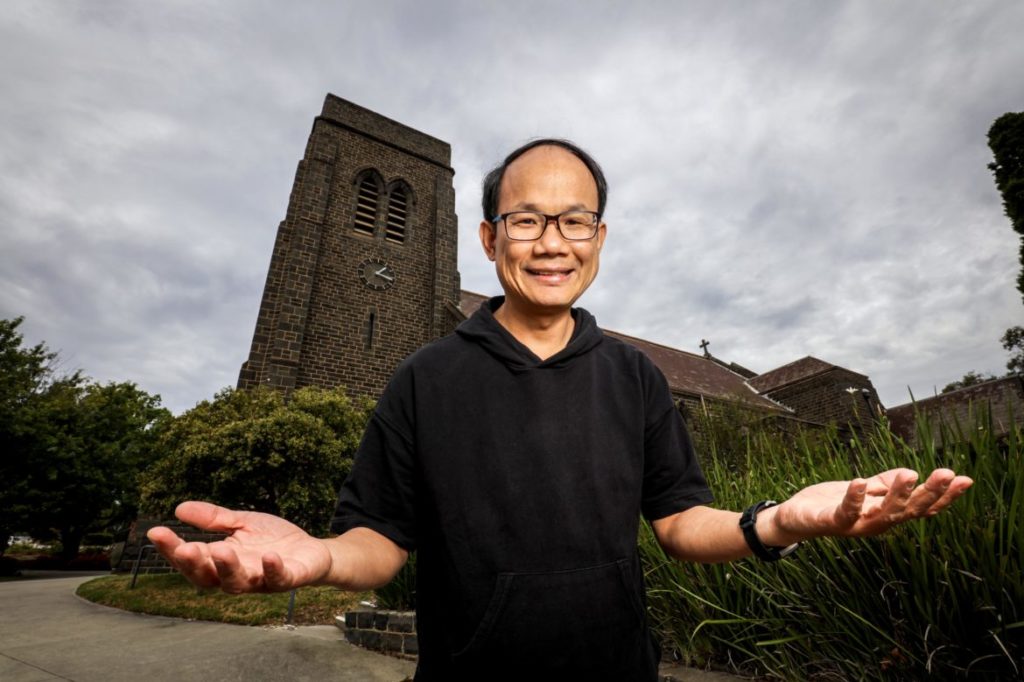
The Uniting Church is made up of many culturally diverse communities that bring their own cultural traditions and different understandings of faith.
At Easter, many of our multicultural communities draw upon the rich cultural traditions of Easter in their home countries and the expression and meaning given to Easter in those places.
Rev. Ajub Jahja, minister at St Andrew’s Gardiner Uniting Church, shared in an interview with Crosslight how Indonesians have a different perspective on the message of Easter.
Ajub, who grew up in Indonesia and spent time in Singapore, says Christians don’t always feel safe in his homeland, which draws them closer to God.
“In Indonesia, generally Christianity is a minority religion which means Christians really focus on important church events such as Easter.”
“Every day of the Easter week – Maundy Thursday, Good Friday, Holy Saturday, Easter Sunday, Indonesian Christians are willing to go to church.”
“When the country is very safe and comfortable and secure (like Australia) maybe it doesn’t seem like we need anything. It’s been taken for granted.”
“The message in Indonesia and here is different. Here I say, don’t wait until everything is gone and then be aware that you need God. We teach the congregation that God has already done so much for us and we remember that.”
Ajub says his favourite part of the Easter celebration in Indonesia is the dawn Easter service.
“Every church in Indonesia has a dawn Easter service. It is normally held at 5am, based on the passages of Luke 24:1 and Mark 16:2. In midst of the darkness and cool air, we worship remembering the rising of Jesus. It always has a special feeling and spiritual experience.”
"After that, we have a gathering, eat porridge and other traditional meals together.”
“In some villages there are churches that hold the service at the funeral area. There are also churches that celebrate Easter with traditional dance and music specific to Indonesian culture,” says Ajub. “Some use wayang (the traditional Indonesia art of puppets) to deliver Easter sermons.”
Assembly National Consultant, Rev. Dr Apwee Ting, who was part of the Protestant Church (GKI) in Java before coming to Australia, says Easter in Indonesia was a joyful, inclusive and communal celebration.
“One thing that I still remember about Easter is the whole-of-church activities that took place after the Easter Sunday service,” says Apwee.
“All members - children, parents and grandparents - joyfully searching for Easter eggs, decorated boiled eggs, not chocolate eggs.”
“What was also important, those who got more shared it with those who got few. It was not about who found more, but who could share more with others.”
Easter in Indonesia is a communal celebration with family and friends, says Apwee, and other denominations and faiths are included in the celebrations.
“It is communal, inclusive and there is joyfulness that Christ is Risen and gives hope to humanity.”
Ajub says it is difficult to hold the dawn Easter service in Australia. For some it is too cold, and most of the congregation have young families.
Because Easter is a long weekend, many use that time to holiday and there are many different activities outside of Church.
For many non-Christians in Australia, Easter is about the Easter bunny and chocolate and fewer people are familiar with the real reason for Easter - the story of Jesus' death and resurrection.
The way ahead is for the Church to live and embody the Easter message, Ajub says.
“It is easier to talk with other people about Easter if we ourselves live its message.”
“We have to show non-Christians that this is the spirit of Easter – forgiveness and sacrifice.”
“We have to teach our congregation to live and appreciate what Jesus has done for us. One time, for a few days in one year, we have to give space in our lives to remember the events of Easter.”
“At Easter, the church should not focus only on the congregation, but also on spreading the love to others.”
With thanks to Crosslight for permission to use its photo and excerpts of its story by Stephen Acott and Mikaela Turner.
